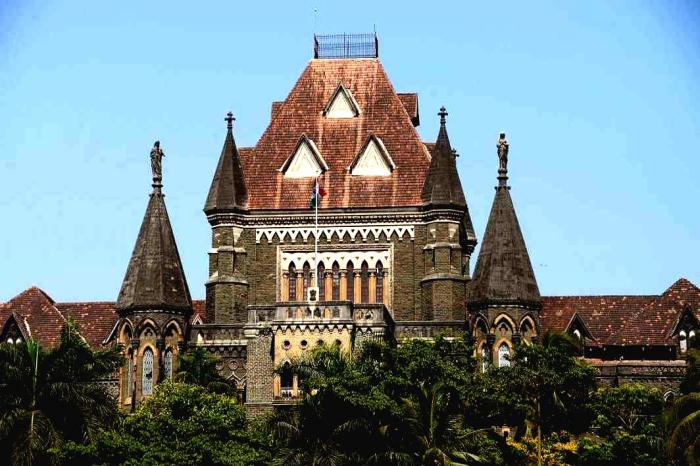Mumbai: In a significant move aimed at ensuring accountability within the healthcare system, the Bombay High Court has directed the Dean of JJ Hospital, Dr. Pallavi Saple, to appear in court following the tragic deaths of a mother and her newborn. This case, which has raised serious concerns about medical negligence, underscores the critical need for regular inspections and adequate facilities in maternity hospitals across the state.
Background of the Incident
The distressing incident occurred on April 29, when a woman and her newborn died at the Sushma Swaraj Maternity Home in Bhandup West, allegedly due to negligence on the part of the hospital authorities. The deceased woman’s husband has since filed a petition in the Bombay High Court, claiming medical negligence in the circumstances surrounding the deaths.
According to the petition, the delivery was conducted under dire conditions—using mobile phone flashlights due to a power failure. After the newborn’s death in a nearby hospital, the mother was transferred to Sion Hospital, where she also succumbed shortly thereafter.
Judicial Concerns Raised
During the hearing, a bench comprising Justices Revati Mohite-Dere and Prithviraj Chavan expressed grave concerns about the implications of the incident. “We don’t want a repeat of the incident,” Justice Mohite-Dere emphasized, highlighting the need for systemic changes to prevent future tragedies.
The Brihanmumbai Municipal Corporation (BMC) informed the court that action had been taken against the doctor on duty during the incident. The doctor had decided to transfer the woman to Sion Hospital following an electrical failure, compounded by a non-functional generator. BMC advocate Poornima Kantharia noted that the doctor should have consulted senior medical professionals before making such a decision.
Questioning Operational Standards
The bench raised critical questions regarding the operational standards of the maternity hospital. “How can a hospital’s generator be non-functional?” Justice Chavan queried, prompting further inquiry into the frequency of inspections conducted at maternity facilities statewide.
The court emphasized that the issue transcends individual accountability. “Not everyone has the capacity to come to court. You need to look at this from a wider perspective,” the bench stated, urging a comprehensive review of maternity care protocols.
Responsibility of Medical Authorities
The hearing also addressed the role of the National Medical Commission (NMC) in overseeing such incidents. Advocate Ganesh Gole, representing the NMC, disclosed that no action had yet been taken against the doctor due to a lack of formal grievances from the family. The bench, however, expressed frustration at this procedural oversight, stating, “We don’t want to get hyper-technical in this case. Lives are precious.”
Justice Mohite-Dere further highlighted the NMC’s responsibility to act on information available in the public domain. “If you come across a news report indicating that something gross is happening in a hospital, don’t you have the power to act? You can’t turn a blind eye to the incident,” she insisted.
In response to the court’s comments, Gole assured that the husband’s petition would be treated as a formal representation, and necessary actions would be initiated.
Implications for Public Health Policy
This tragic case not only raises immediate concerns about the safety and quality of maternal healthcare in Mumbai but also sheds light on broader systemic issues within the public health framework. The incident has sparked a call for a thorough reassessment of operational standards in maternity hospitals, emphasizing the need for regular inspections and the establishment of emergency protocols.
The Bombay High Court’s intervention highlights the judiciary’s role in holding healthcare providers accountable and ensuring that patients receive the care they deserve. As the court continues to examine the details of this case, it is clear that there is an urgent need for reforms to prevent similar incidents in the future.
Community Response and Future Actions
The community has reacted strongly to the news of this tragedy, with many calling for greater transparency and accountability in healthcare practices. Advocates for maternal health are urging the government to implement stricter regulations and oversight mechanisms to safeguard the rights of patients.
As the case progresses, stakeholders from various sectors—including medical professionals, policymakers, and community organizations—are encouraged to collaborate in addressing the underlying issues that contribute to medical negligence. This could involve enhanced training for medical staff, improved infrastructure in healthcare facilities, and greater public awareness regarding patients’ rights.
Conclusion: A Call for Systemic Change
The deaths of a mother and her newborn at a Bhandup maternity home serve as a somber reminder of the critical need for systemic change within the healthcare sector. The Bombay High Court’s directive for the JJ Hospital Dean to appear in court is a crucial step toward accountability and reform.
Moving forward, it is essential for all involved parties to take a collective stand in ensuring that such tragedies do not recur. Lives depend on it, and the community deserves a healthcare system that prioritizes safety, dignity, and care for all its patients. As this case unfolds, the hope is that it will lead to meaningful changes that enhance the quality of maternal and newborn care throughout the state.
Related topics:


